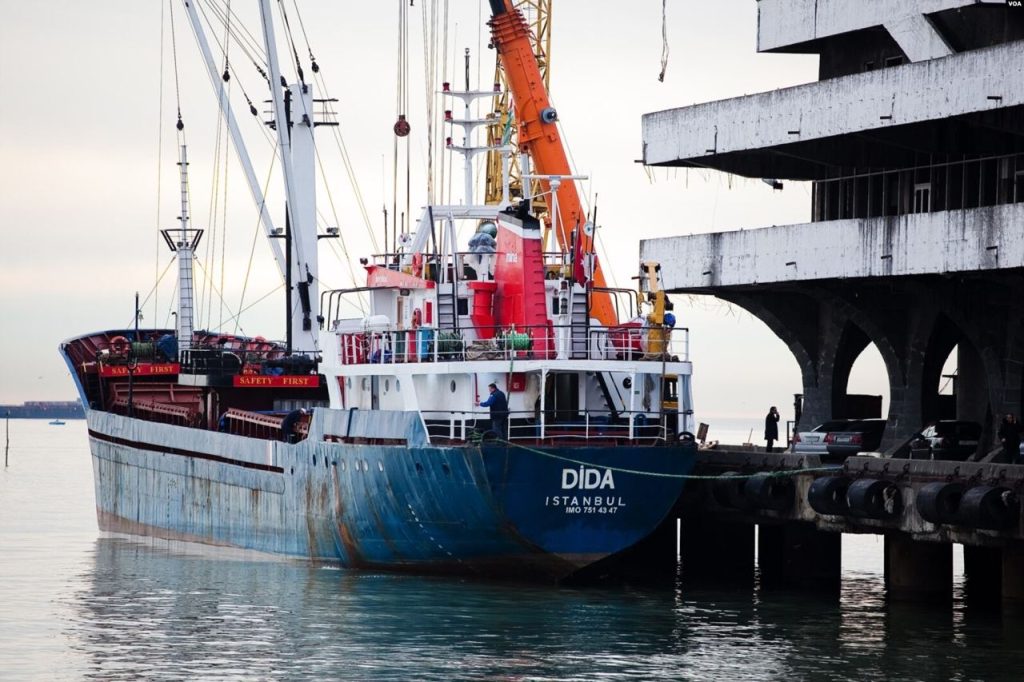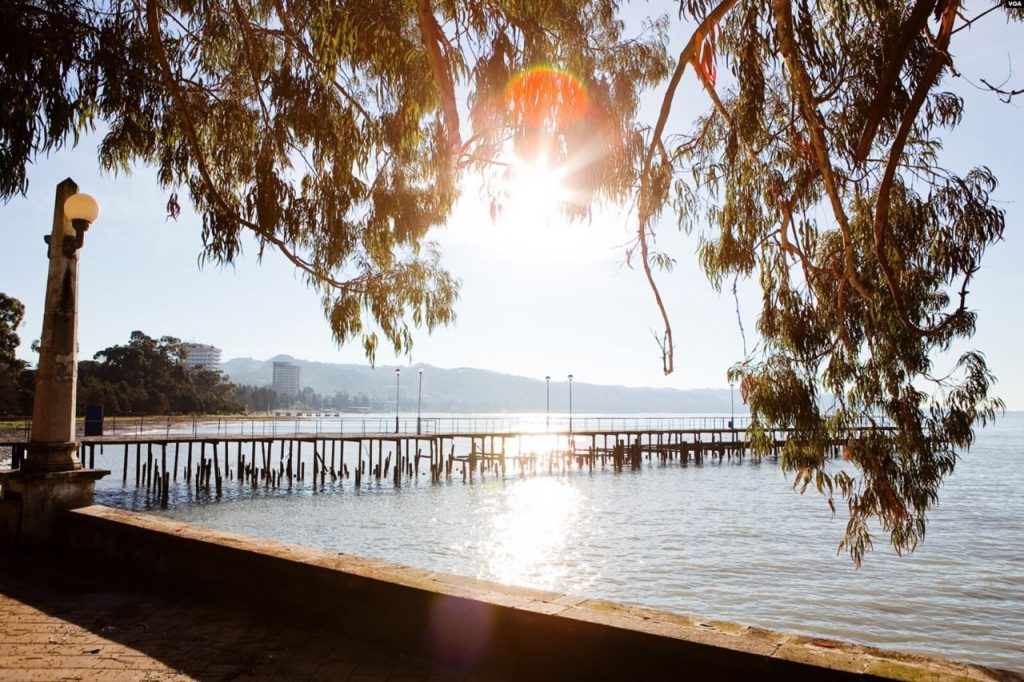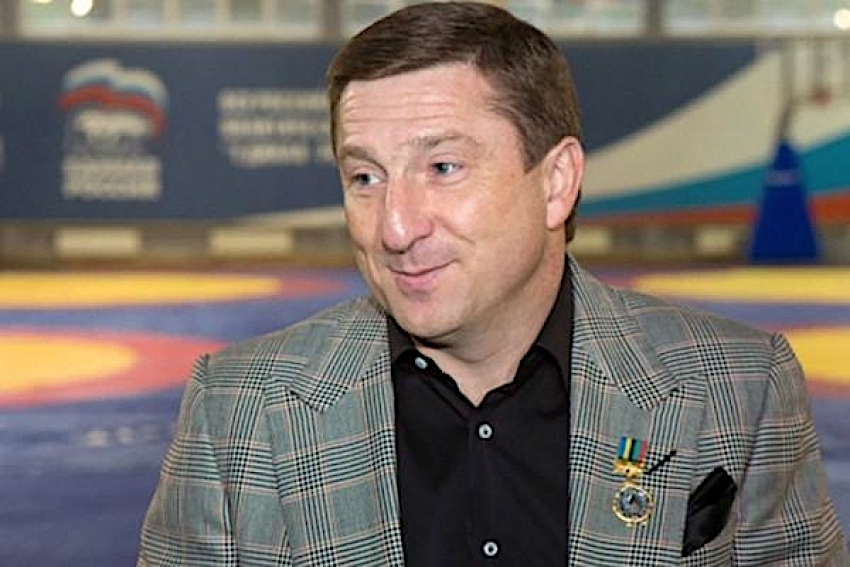Dual citizenship in Abkhazia: not a luxury, but a means of transportation
Almost half of the residents of Abkhazia cannot travel abroad because their passports are not internationally recognized. But even dual citizenship in Abkhazia – Abkhazian and Russian – does not yet guarantee freedom of movement due to sanctions imposed on Russia.
About 60% of the population of Abkhazia have Abkhazian-Russian citizenship. Abkhazians were able to get a Russian passport between 2000 and 2008, through a simplified procedure. The remaining 40% have only an Abkhazian passport, with which they cannot travel anywhere except the Russian Federation. But even those who have a Russian passport are severely restricted in their movement. And with the latest sanctions, the circle is shrinking more and more.
Missed opportunities
Abkhazian diplomats have been unsuccessfully trying for many years to persuade the world community to recognize the passport of Abkhazia at least as a travel document.
Amina Abshilava, a 20-year-old student, complains that because of her Abkhaz passport being unrecognized, she has missed out on a lot of opportunities related to study and work. She has been invited to participate in various international projects, but was forced to refuse.
“I will definitely get a Russian passport as soon as possible, because a lot of interesting things are passing me by,” Amina says.

When issuing Russian passports to citizens of the unrecognized republic, the Russian Federation argued that they were effectively stateless. But after Russia recognized the independence of Abkhazia in 2008 and established formal diplomatic relations with Sukhum, the simplified system was abolished. Now they are going to bring it back — at the end of September, Russia and Abkhazia signed an agreement on dual citizenship. But almost simultaneously with the signing of this agreement, the European Union announced that it would refuse to recognize Russian passports issued in Abkhazia (they differ from the “real” passports by two numbers in the series). It is therefore impossible to obtain a Schengen visa on this passport.
- Tourist season in Abkhazia: reflections from owners
- “For Lukashenka it was a sad trip” – Georgian experts on his visit to Abkhazia
- What can Armenians of NK expect in Azerbaijan? Azerbaijani scholar’s forecast
Detour to Europe
There is, however, a way to get around this ban — bribery in Russian state institutions for a temporary Russian residence permit, and thereafter a general passport and then a visa to a European country still accepting Russian citizens. But this method requires money, which not all residents of Abkhazia have. And secondly, at this moment even a “real” Russian passport is not particularly welcome in the world.
According to Amina Abshilava, the more the West limits the residents of Abkhazia with sanctions, the more they depend on Russia. It is possible, however, to obtain a Georgian passport, which allows visa-free entry into the EU. But for Amina, this option is completely unacceptable:
“On Facebook Georgians write, take our passports and the whole world will be open to you. But this is not our way. Our elders fought for us to live in our own country and survive as Abkhazians. And we, in order to look at the Eiffel Tower, have to do this? No, this will not happen. Russia is nearby, and now they will issue Russian passports.”
Amina does not believe that Russia will be isolated.
“It’s too big and powerful for the world to stop reckoning with it, as with us.”
Two citizenships – four times higher pension
But there is another reason why dual citizenship in Abkhazia significantly affects quality of life. A Russian passport gives the right to a Russian pension, which is at least four times higher than the Abkhazian.

Marina Kobakhia did not have time to acquire Russian citizenship by 2008. And now, having reached retirement age, she regrets it very much:
“We then applied for citizenship to my husband and children, I also collected my documents, but there was not enough money to pay the fee for everyone at once. So I was left without a passport and without a pension. Now I work, I get a salary, so there is an opportunity to satisfy some of my needs, but without the help of my children, I could not do it.”
Even the lowest old-age allowance due to a citizen of the Russian Federation is four times more than the Abkhazian. The minimum pension in Russia today is about 10,000 rubles ($161), while in Abkhazia it is 2,500 rubles ($40). According to Marina Kobakhia, this is not enough even for one trip to the market.
“I am now waiting for notice of acceptance of documents. I’ll go and do it right away. With a pension I will feel more confident,” Marina says.
In addition to old-age benefits, dual citizenship in Abkhazia also allows you to receive other Russian social payments and benefits, for example maternity capital, also circuitously. By law such payments are due only to those living directly in Russia. This means that, just as with a foreign passport, one needs to pay an official of some Russian state institution and apply for a “fake” residence permit. Announcements about such services are often found on social networks.
Toponyms and terminology used by the author, as well as views, opinions and strategies expressed by them are theirs alone and do not necessarily reflect the views and opinions of JAMnews or any employees thereof. JAMnews reserves the right to delete comments it considers to be offensive, inflammatory, threatening or otherwise unacceptable



















